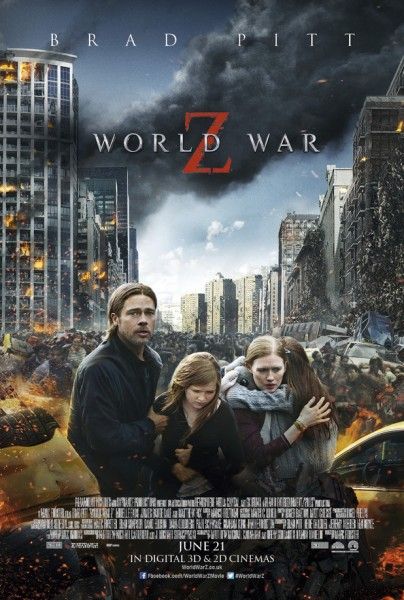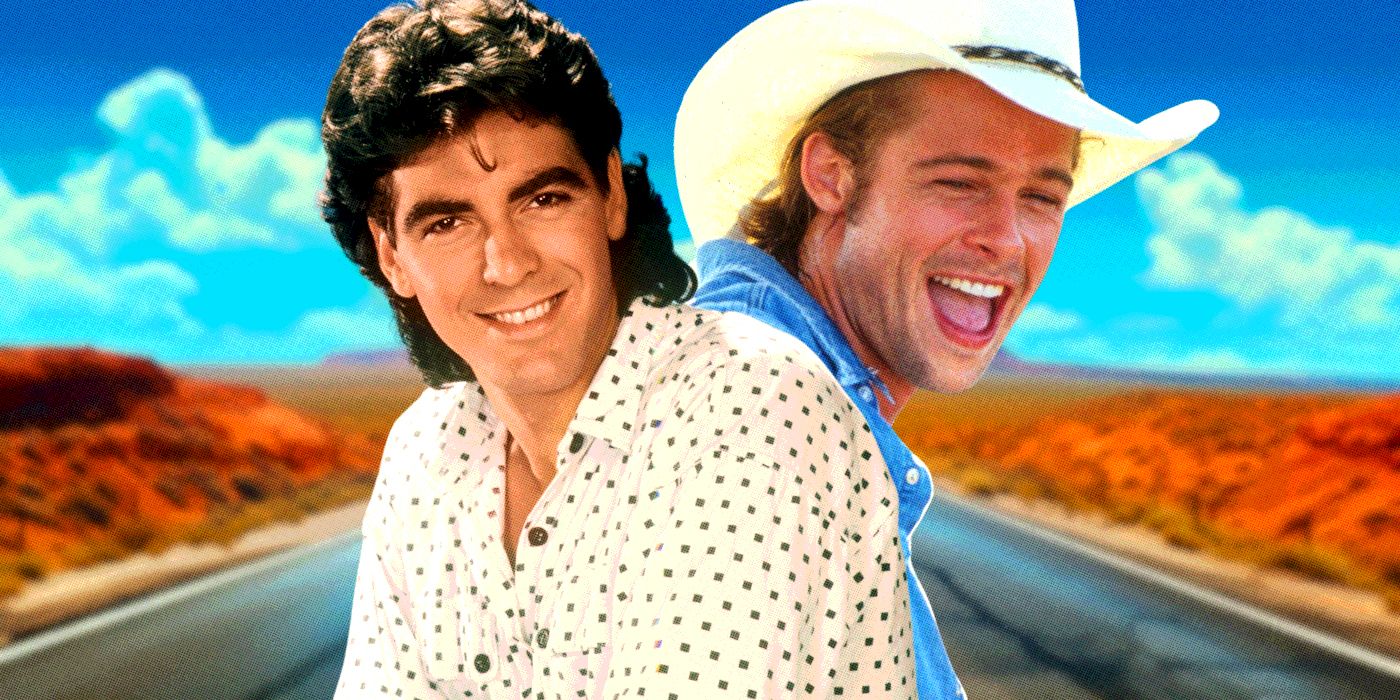‘World War Z’s filmmakers had to deal with script rewrites, budget overruns, on-set conflicts … oh, and a raid by an anti-terrorism unit.
The Big Picture
- Brad Pitt’s
World War Z
was a troubled production from the start, with clashes between the director and screenwriters causing delays and rewrites. - Budget overruns plagued the film, with forgotten purchase orders and unexpected expenses putting it over budget just weeks into shooting.
- The final action sequence in Russia was almost a legal disaster, as a raid on the crew’s warehouse uncovered fully functional weapons that were illegally transported. Charges were eventually dropped, but the footage shot in Budapest didn’t make it into the final film.
Brad Pitt’s action-packed, effects-heavy 2013 zombie apocalypse movie is one of – if not the – biggest budget and highest-grossing films in the genre. It’s the type of movie that seems tailor-made for a franchise and even features an open-ended conclusion that screams “sequel bait.” Yet over 10 years after its release, a sequel has never been produced, and that might be because the original production of World War Z was about as disastrous as an actual zombie apocalypse.
Loosely based on the 2006 novel of the same name by Max Brooks (incidentally, the son of Mel Brooks and Anne Bancroft), the film revolves around UN investigator Gerry Lane, played by Pitt, who suddenly finds himself and his family trapped in a swarm of rampaging, fast-moving undead. We then follow Lane as he travels around the world searching for a cure. It’s quite a departure from the novel, which is instead structured as a series of interviews with traumatized veterans of the global war against the zombies, each of whom recounts their story of survival and how their nation defeated the infected within its borders.

World War Z
Based on the novel by Max Brooks, World War Z tells the story of a world ravaged by a zombie virus. Former United Nations investigator Gerry Lane (Brad Pitt) braves the apocalypse in search of a cure. He is tasked with finding the point of origin of the virus in order to synthesize a vaccine, reluctantly doing so in exchange for his family’s safety. His search takes him around the world, where he witnesses all the devastation of the apocalypse.
- Release Date
- June 20, 2013
- Director
- Marc Forster
- Cast
- Brad Pitt , Mireille Enos , Daniella Kertesz , James Badge Dale , Ludi Boeken , Matthew Fox
- Runtime
- 116
- Main Genre
- Action
- Writers
- Matthew Michael Carnahan , Drew Goddard , Damon Lindelof , J. Michael Straczynski , Max Brooks
- Studio
- Paramount Pictures
‘World War Z’s Production Was Troubled from the Start
Studios were fighting over the rights to adapt Brooks’ novel before it was even published, with a bidding war breaking out between Pitt’s production company Plan B and Leonardo DiCaprio‘s company Appian Way. Pitt won, of course, and along with Paramount, secured the rights to produce the film in 2006. Michael Straczynski, writer of Thor and Underworld: Awakening, soon signed on to write the screenplay. A draft of Straczynski’s script was leaked online in 2008 and was widely praised by critics, at least one of whom drew favorable comparisons to Children of Men and called for a big name horror director such as Peter Jackson or Sam Raimi to bring it to life. But instead, Marc Forster, director of Quantum of Solace, which itself had a famously troubled production, was brought on to helm the picture on Pitt’s recommendation – a decision that almost certainly led to many of the film’s problems down the line.
Forster and Straczynski clashed immediately. While Straczynski took a cerebral approach to the script much like that of the source material, Forster wanted a more exciting, action-heavy story. Straczynski submitted a re-write in December 2008, but the director still wasn’t satisfied. The screenwriter then either walked away from the project or was fired, and Matthew Michael Carnahan – writer of action thriller The Kingdom – signed on to overhaul the script. Meanwhile, Forster’s relative inexperience directing big-budget action flicks created more problems. A source told the Hollywood Reporter that as late as three weeks before filming was scheduled to start, the director still hadn’t pinned down the zombies’ appearance or style of movement.
Budget Overruns Started Mounting Right Away
Filming finally began in mid-2011 with an expected budget of over $125 million – an extremely high figure for a horror movie at the time – and new complications began piling up from day one. The crew started with a big action sequence set in Jerusalem that was actually shot on the tiny island of Malta. It involved flying in massive amounts of equipment and costumes and recruiting almost 1,000 extras from among the locals. Minor shooting delays and unexpected expenses began to mount. To add insult to injury, as the crew wrapped up the Malta shoot, a pile of forgotten purchase orders were discovered which added up to millions of dollars that hadn’t been factored into the original cost estimates, putting the film over budget just weeks into shooting.
The conflicts between Forster and others working on the film came next. Oscar-winning visual effects supervisor John Nelson – who had worked on major productions including Gladiator, Iron Man, and two Matrix sequels – tussled with Forster over what the director called “creative differences,” and he was eventually replaced once principal photography had been completed. Forster also butted heads with Pitt over the course of filming, and at one point rumors even swirled that the two weren’t on speaking terms. But the wildest part of the story was yet to come.
The Final Action Scene Almost Landed Brad Pitt in Hot Water
The final action sequence was set to take place in Russia and would be shot in Budapest. But on the morning of October 10, 2011, a Hungarian SWAT team raided the warehouse where the crew had stored weapons to be used in filming, seizing 85 military-style assault rifles, handguns, and grenades. As a source told Us Weekly at the time, the import papers claimed that the guns had been disabled, but in reality, they were fully functional. Transporting such weapons in Hungary was illegal, and for a time, questions loomed over whether Pitt or anyone else in the production would face criminal charges. However, the arsenal was eventually returned to Pitt’s production company and the charges were dropped on a technicality.
The kicker is that the footage that was shot in Budapest never even made it into the final film. Worried that the ending was disjointed and didn’t fit the rest of the story, producers brought in Damon Lindelof – co-creator of Lost and writer on big budget sci-fi movies like 2009’s Star Trek – for yet another rewrite. Lindelof recommended tossing out the original ending and reshooting a completely new one, and the studio agreed. He then brought on Lost producer Drew Goddard for help with the revisions, and the new ending, which cost an estimated $20 million to reshoot, was approved by Paramount.

George Clooney Hated That Brad Pitt Beat Him Out for This Role
“I may be an outlaw, darlin’ but you’re the one stealin’ my heart.”
All told, World War Z cost over $200 million to produce, and with a reported marketing budget of $160 million, the film would need to return around $400 million at the box office just to break even. Yet despite opening to a crowded summer slate that included numerous other blockbuster action movies (Iron Man 3, Man of Steel, and Star Trek Into Darkness, to name a few), Pitt’s zombie thriller managed to pull in over $540 million worldwide, ultimately salvaging a film that had practically felt cursed from the moment of its inception. So, if the movie ended up being a box office win, why was a sequel never made? Reportedly, as late as 2019, David Fincher was in talks with Paramount to direct a Part Two, with Pitt slated to return as the lead, but the studio refused to approve the budget. After the nightmare that was the first film’s production, we can hardly blame them.
World War Z is currently available to stream on Paramount+ in the U.S.
This article was originally published on collider.com


